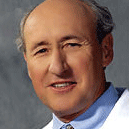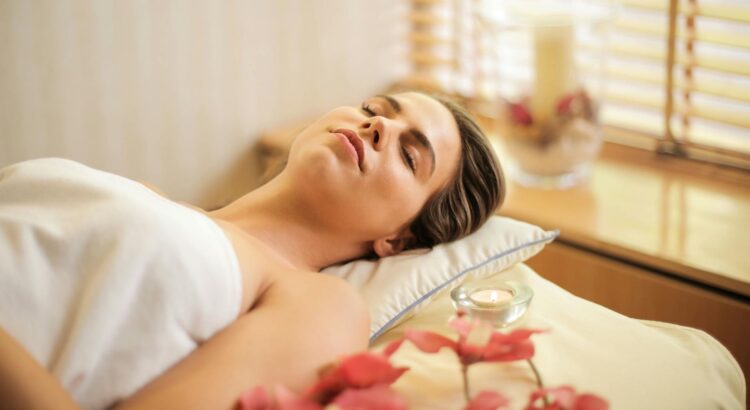Acne is a widespread skin problem affecting millions of people worldwide. In the United States alone, nearly 60 million people suffer from acne, with approximately 85% of preteens and teens experiencing this skin condition. Acne can manifest not only on the face but also on the back, chest, and upper arms.
This guide provides an extensive overview of various home acne treatments, including general tips and considerations for different body areas.
General Acne Treatment Tips
Gentle Cleansing
One of the fundamental steps in managing acne is maintaining proper facial hygiene. Washing your face twice a day with a gentle, unperfumed cleanser helps remove dirt, oil, and impurities without irritating the skin. It’s important to avoid using soaps that contain harsh chemicals, which can damage your skin and exacerbate acne.
Cleansing
- Frequency: Wash your face twice a day (thrice at most) using a gentle, unperfumed cleanser. Avoid using harsh soaps as they can damage your skin.
- Method: Use lukewarm water and gently massage the cleanser into your skin. Rinse thoroughly and pat dry with a clean towel.
Avoid Touching Your Face
Touching your face frequently can transfer bacteria and oils from your hands to your skin, leading to acne flare-ups. It’s crucial to become conscious of this habit and make a deliberate effort to avoid unnecessary hand-to-face contact. This simple change can significantly reduce the likelihood of acne outbreaks.
Resist the Urge to Pick
Picking, pricking, or squeezing acne can push the infection deeper into the skin and cause severe scarring. It’s essential to resist this urge to prevent long-term skin damage and further inflammation.
Natural Remedies
Sulfur
Sulfur is a well-known treatment for acne due to its ability to unblock pores and exfoliate the skin. It helps heal existing blemishes and prevent new ones from forming.
- Properties: Sulfur helps to unblock pores and exfoliate the skin, promoting the healing of existing blemishes.
- Usage: Use sulfur-based treatments as directed, typically in the form of masks or spot treatments.
Tea Tree Oil
Tea tree oil is a natural antibiotic and antibacterial agent. It has a drying effect on the skin and helps reduce oiliness, making it an effective treatment for acne. Its antibacterial properties keep the P. acnes bacteria at bay, reducing the frequency and severity of breakouts.
- Properties: Tea tree oil is a natural antibiotic and antibacterial agent. It helps reduce facial oiliness and prevents acne outbreaks.
- Usage: Apply a small amount to the affected areas using a cotton swab.
How to Choose Acne Treatment Products?
Acne is a problem from which really a lot of people suffer. And the sufferers sometimes completely do not know what to do when the ugly spot appears on any part of their bodies. Some people just seem to get into panic, mostly because they simply do not know from where the pimple appeared.
In their panic these poor guys often begin to use multifarious preparations in an effort to find the best acne products, but still they do not achieve any result. In this case the advice will be simple: don’t be so anxious.
Just do it – just try to compare different products and choose the best acne product. A cold-minded comparison is always better than jumping from one product to another. Thinking first of doing is the basic principle of human life. And doing first of thinking is the thing for requital always comes, sooner or later.
Another approach is quite different. More exactly, it is merely indifferent. Maybe somewhere deep in their souls such guys do have some complexes because of their acne…or maybe their complexes are so deep so that they have already said “whatever” to their good look.
Acne products comparison chart
Anyway these people are also recommended to make some acne products comparison chart and rethink about their attitude. Maybe then even their life could change.
See also: Acne products comparison chart
The third approach is more correct anyway – and it is the most common among normal people not burdened much with different complexes or diseases yet unknown to the mankind. These guys tend to find some treatment and often they do achieve success.
But the advice concerning how to choose acne products is nevertheless good for them as well, especially if they have a lack of system in their opinions about different acne treatment preparations. Besides, that is much easier to draw such chart if the one already knows several good acne products.
Over-the-Counter Treatments
Benzoyl Peroxide
Benzoyl peroxide is one of the most effective over-the-counter treatments for acne. It kills P. acnes bacteria and reduces oil production, helping to clear up existing acne and prevent new blemishes.
- Properties: Benzoyl peroxide is effective at killing P. acnes bacteria and may reduce oil production.
- Products: Available in creams, gels, and washes. Use as directed on the product label.
Salicylic Acid
Salicylic acid is another popular ingredient in acne treatments. It helps break down blackheads and whiteheads and reduces the shedding of cells lining the follicles of oil glands. This action helps prevent clogged pores, a common cause of acne.
- Properties: Salicylic acid helps break down blackheads and whiteheads and reduces the shedding of cells lining the follicles.
- Products: Found in cleansers, toners, and spot treatments. Use consistently for best results.
Azelaic Acid
Azelaic acid is an alternative to benzoyl peroxide that has anti-inflammatory and antibacterial properties. It helps reduce acne and can also improve the appearance of acne scars.
Topical Antibiotics
Topical antibiotic solutions and lotions can be used to reduce bacteria on the skin and decrease inflammation. They are often prescribed alongside other treatments to enhance their effectiveness.
Alpha and Beta Hydroxy Acids (AHA and BHA)
Alpha and beta hydroxy acids help keep the skin exfoliated, minimizing pores and preventing clogged follicles. Glycolic acid, a popular AHA, is effective in treating acne scars. Mandelic acid, a lesser-known AHA, combines exfoliating and antibacterial properties, making it suitable for treating mild to moderate acne, especially for those with sensitive skin.
- Glycolic Acid: Known for its exfoliating properties, glycolic acid helps minimize pores and treat acne scars.
- Mandelic Acid: Combines exfoliating and antibacterial properties, making it effective for treating mild to moderate acne without causing irritation.
Body Acne Treatments
Understanding Body Acne
While facial acne is the most common and visible type, many people also suffer from acne on their backs, chests, and upper arms. Body acne can be more stubborn and challenging to treat due to the thicker skin and higher oil production in these areas. Clothing and sweat can also contribute to irritation and acne flare-ups.
Showering and Cleansing
Regular showering, especially after sweating, is crucial for managing body acne. Using a cleanser with salicylic acid can help exfoliate the skin and prevent clogged pores. It’s important to ensure that your body is thoroughly cleansed and dried after workouts or any activities that cause sweating.
Clothing Considerations
Wearing loose, breathable clothing made from natural fibers can reduce irritation and allow the skin to breathe. Tight or synthetic fabrics can trap sweat and oil, exacerbating acne.
Salicylic Acid for Body Acne
Doctors often recommend using body washes and topical treatments containing salicylic acid for body acne. Applying these treatments in the evening before bed allows the active ingredients to work overnight, reducing inflammation and preventing new breakouts.
Addressing Root Causes
To effectively treat body acne, it’s essential to address the root causes. Hormonal imbalances, poor skin care, and excessive sweating can all contribute to acne. Identifying and managing these factors can help prevent acne from recurring.
Natural Acne Treatments
Tea Tree Oil
As mentioned earlier, tea tree oil is a powerful natural remedy for acne. Its antibacterial properties help reduce acne-causing bacteria, and its drying effect can decrease oiliness. Using tea tree oil as a spot treatment or diluted in a carrier oil can help manage acne outbreaks.
Sulfur
Sulfur’s ability to unblock pores and exfoliate the skin makes it a valuable natural treatment for acne. It can be used in various forms, including masks, cleansers, and spot treatments.
Alpha and Beta Hydroxy Acids
Natural sources of alpha and beta hydroxy acids, such as fruit extracts, can provide gentle exfoliation and improve skin texture. Products containing these natural acids can be incorporated into your skincare routine to help manage acne.
Dietary Considerations
Some people find that certain foods can trigger or worsen acne. Keeping a food diary and noting any correlations between diet and breakouts can help identify potential triggers. Reducing the intake of sugary, greasy, or highly processed foods and increasing the consumption of fresh fruits, vegetables, and whole grains can benefit overall skin health.
Advanced Treatments
Prescription Medications
For severe or persistent acne, prescription medications may be necessary. These can include topical retinoids, oral antibiotics, or hormonal treatments such as birth control pills. Consulting a dermatologist can help determine the most appropriate treatment plan for your specific needs.
Professional Treatments
In some cases, professional treatments like chemical peels, laser therapy, or microneedling may be recommended to address acne and improve skin texture. These treatments should be performed by licensed professionals to ensure safety and effectiveness.
Preventive Measures
Consistent Skincare Routine
Maintaining a consistent skincare routine is crucial for preventing acne. This routine should include gentle cleansing, regular exfoliation, and the use of appropriate acne treatments. It’s important to avoid over-washing or using too many products, as this can irritate the skin and worsen acne.
Managing Stress
Stress can contribute to acne flare-ups by triggering hormonal changes and increasing oil production. Incorporating stress-management techniques such as exercise, meditation, or hobbies can help reduce the impact of stress on your skin.
Adequate Hydration
Keeping the skin hydrated is essential for overall skin health. Drinking plenty of water and using a suitable moisturizer can help maintain the skin’s moisture barrier and prevent dryness and irritation.
Regular Exercise
Regular physical activity promotes overall health and can improve skin condition. However, it’s important to shower and cleanse the skin promptly after exercising to remove sweat and prevent clogged pores.
Long-Term Acne Management
Managing acne often requires a combination of treatments and lifestyle changes:
- Consistent Routine: Stick to a consistent skincare routine tailored to your skin type.
- Diet and Hydration: Maintain a healthy diet and stay hydrated to support overall skin health.
- Stress Management: High stress levels can worsen acne. Practice stress-reducing activities such as exercise, meditation, or hobbies.
Conclusion
Acne is a common and often frustrating skin condition that can affect various parts of the body. While there is no one-size-fits-all solution, a combination of proper skincare, natural remedies, over-the-counter treatments, and professional advice can help manage and reduce acne. By understanding the different causes and treatments for acne, individuals can develop a personalized approach to achieve clearer, healthier skin.
Maintaining a consistent skincare routine, making lifestyle adjustments, and seeking professional help when necessary are all key steps in the journey to overcoming acne. With patience and persistence, it’s possible to achieve significant improvements and regain confidence in your skin.

Dr. Jerry K is the founder and CEO of YourWebDoc.com, part of a team of more than 30 experts. Dr. Jerry K is not a medical doctor but holds a degree of Doctor of Psychology; he specializes in family medicine and sexual health products. During the last ten years Dr. Jerry K has authored a lot of health blogs and a number of books on nutrition and sexual health.
